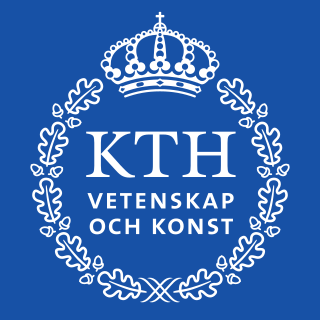
The KTH Royal Institute of Technology, abbreviated KTH, is a public research university in Stockholm, Sweden. KTH conducts research and education in engineering and technology and is Sweden's largest technical university. Currently, KTH consists of five schools with four campuses in and around Stockholm.

The mayor of New York City, officially Mayor of the City of New York, is head of the executive branch of the government of New York City and the chief executive of New York City. The mayor's office administers all city services, public property, police and fire protection, most public agencies, and enforces all city and state laws within New York City.
The government agencies in Sweden are state-controlled organizations that act independently to carry out the policies of the Government of Sweden. The ministries are relatively small and merely policy-making organizations, allowed to monitor the agencies and preparing decision and policy papers for the government as a collective body to decide upon.
James (Jim) Chin is a public health epidemiologist. He works in public health surveillance and prevention of communicable diseases, particularly AIDS.
Gudmund Harlem was a Norwegian physician and politician for the Labour Party. He was the Norwegian Minister of Social Affairs from 1955 to 1961 and Norwegian Minister of Defence from 1961 to 1965. As a physician he spent most of his career at Statens Attføringsinstitutt, serving as director from 1970 to 1977. He was then a professor at the Norwegian Institute of Technology and director of NTNF. He was the father of former Norwegian Prime Minister Gro Harlem Brundtland and former Norwegian Minister of Justice Hanne Harlem.
Guldhjälmen is a Swedish ice hockey award, which is awarded annually to the's most valuable player of the Swedish Hockey League (SHL) and of the Swedish Women's Hockey League (SDHL) as decided by a vote of each league’s players.
The Ministry of Health and Social Affairs is a ministry in the government of Sweden responsible for policies related to social welfare: financial security, social services, medical and health care, health promotion and the rights of children and disabled people.
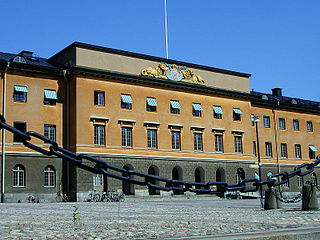
The Swedish National Heritage Board is a Swedish government agency responsible for World Heritage Sites and other national heritage monuments and historical environments. It is governed by the Ministry of Culture.

Carl Johan Gunnar Persson was a Swedish jurist and politician. Persson served as the National Police Commissioner of the Swedish Police Authority from 1964 to 1978. His highest profile investigations during his tenure as National Police Commissioner included the hijacking of Scandinavian Airlines System Flight 130 to Bulltofta Airport in 1972, the Norrmalmstorg robbery in 1973, and the West German Embassy siege by the Red Army Faction in 1975. Persson also served as the president of the Interpol from 1976 to 1980 and as Governor of Halland County from 1978 to 1979 and the Governor of the former county of Gothenburg and Bohus from 1979 to 1980.
Blenda Margareta Hegardt was a Swedish diplomat. She was Swedish consul general in Los Angeles 1983-89, ambassador in Dublin 1989-93 and consul general in Hamburg 1993-97.

The Chief of Army is the most senior appointment in the Swedish Army. The position Chief of Army was introduced in 1937 and the current form in 2014.

Gunhild Margareta Hallin Ekerot was a Swedish opera singer, composer and actress.

The Chief of Navy is the most senior appointment in the Swedish Navy. The position Chief of Navy was introduced in 1936 and the current form in 2014.

Swedish National Defence Research Institute was a Swedish government agency in defense research existing from 1945 to 31 December 2000. It was amalgamated with the National Aeronautical Research Institute (FFA) into the Swedish Defence Research Agency (FOI) which was established on 1 January 2001.
The National Swedish Board of Health was a Swedish government agency between 1878 and 1968, with responsibility for the health and medical services and the pharmacy services. All the activities in the field of public health in Sweden are either operated or controlled by public authorities. Public health is under the Ministry of Health and Social Affairs, the chief of which is a member of the cabinet. The National Swedish Board of Health was the principal instrument of the State for governing, superintending and promoting the activities and the work of the institutions pertaining to this field. The board supervised the medical personnel, the hospitals and the pharmacies and had the direct control of the State Pharmaceutical Laboratory, the State institutions for forensic medicine, a unit for mass radiofluorography etc. The National Swedish Board of Health was dissolved in 1968 and became the National Board of Health and Welfare.
The Ministry of the Interior was a ministry in Sweden established in 1947. The department dealt with matters concerning general health and medical care, the police service, the fire service, and the local government. The ministry was headed by the minister of the interior. At the end of 1973, the Ministry of the Interior ceased to exist and the activities were taken over by other ministries, such as the Ministry of Employment and the Ministry of Housing. In 1996, the former Ministry for Civil Service Affairs changed its name to the Ministry of the Interior and was called that until 1998, when the ministry ceased.
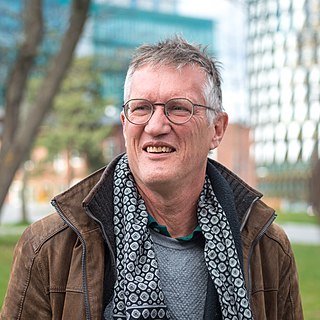
Nils Anders Tegnell is a Swedish civil servant and physician specialising in infectious disease. From 2013 until his resignation in March 2022 he was Sweden's state epidemiologist.
Johan Giesecke is a Swedish physician and Professor Emeritus at the Karolinska Institute in Stockholm.
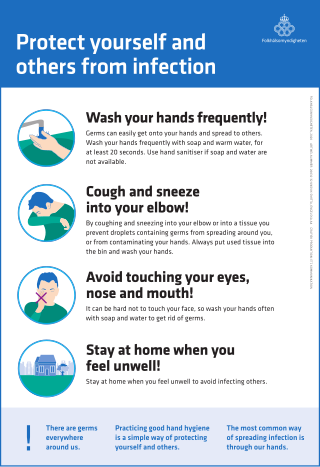
Sweden's unique response to the COVID-19 pandemic has been the subject of significant controversy in both domestic and international circles. Unlike most countries, which strongly recommended or introduced widespread sector closures, quarantining, and lockdown measures to curb the spread of the coronavirus disease 2019, the government of Sweden took a more lenient approach to the pandemic, prioritizing the economy and only pursuing social distancing measures such as bans on large gatherings and limited travel restrictions.
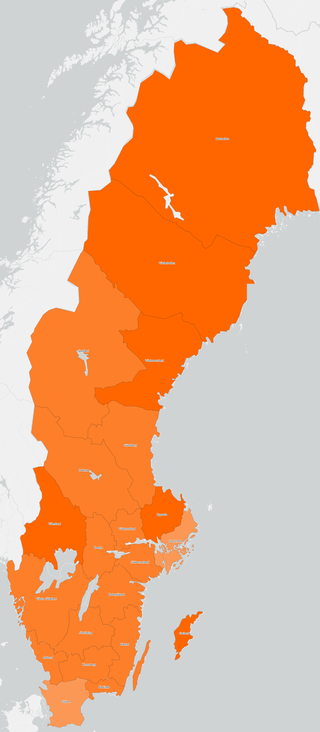
Vaccination against COVID-19 in Sweden started on 27 December 2020 after the approval of the Pfizer–BioNTech vaccine by the European Commission. In Sweden, the Public Health Agency has been commissioned by the government to create a vaccination plan. Sveriges riksbank, the central bank of Sweden, predicts that efficient vaccination against COVID-19 has macroeconomic benefits. As of 20 April 2022, 87.1% of people in Sweden have received at least one dose, with a total of 21,491,717 doses administered. At least one vaccine has been approved for all age groups 12 and older. Children younger than 12 in high risk groups can also be vaccinated.











